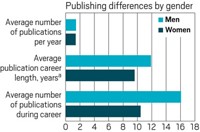Advertisement
Grab your lab coat. Let's get started
Welcome!
Welcome!
Create an account below to get 6 C&EN articles per month, receive newsletters and more - all free.
It seems this is your first time logging in online. Please enter the following information to continue.
As an ACS member you automatically get access to this site. All we need is few more details to create your reading experience.
Not you? Sign in with a different account.
Not you? Sign in with a different account.
ERROR 1
ERROR 1
ERROR 2
ERROR 2
ERROR 2
ERROR 2
ERROR 2
Password and Confirm password must match.
If you have an ACS member number, please enter it here so we can link this account to your membership. (optional)
ERROR 2
ACS values your privacy. By submitting your information, you are gaining access to C&EN and subscribing to our weekly newsletter. We use the information you provide to make your reading experience better, and we will never sell your data to third party members.
Careers
Research misconduct is common among Middle East scientists, survey says
Almost 75% report knowing about misconduct by their colleagues
by Andrea Widener
November 27, 2017
| A version of this story appeared in
Volume 95, Issue 47
Research misconduct is a serious problem in the Middle East, a survey of academic scientists there shows.
Nearly 60% of respondents reported committing at least one breach of research ethics, and almost 75% said they knew of similar problems among their colleagues. “Scientific misconduct represents a significant issue in several universities in the Middle East,” the paper says.
Previous studies have found that misconduct is common in the U.S., Europe, and beyond. However, this is the first examination of the problem in the Middle East, the authors say. They analyzed anonymous responses from 278 investigators at universities in three countries: Egypt, Lebanon, and Bahrain (J. Acad. Ethics 2017, DOI: 10.1007/s10805-017-9295-9).
The most common type of misconduct was circumventing research ethics regulations, followed by fabrication and falsification of data. Faculty were less likely to have committed misconduct than students and postdocs.
Lack of ethics training was a significant predictor of misconduct. Those who had previous ethics training or had worked in Western labs were less likely to say they had committed misconduct. “Training in ethics might enhance investigators’ awareness and understanding of the issues surrounding research integrity,” the authors reported.




Join the conversation
Contact the reporter
Submit a Letter to the Editor for publication
Engage with us on Twitter